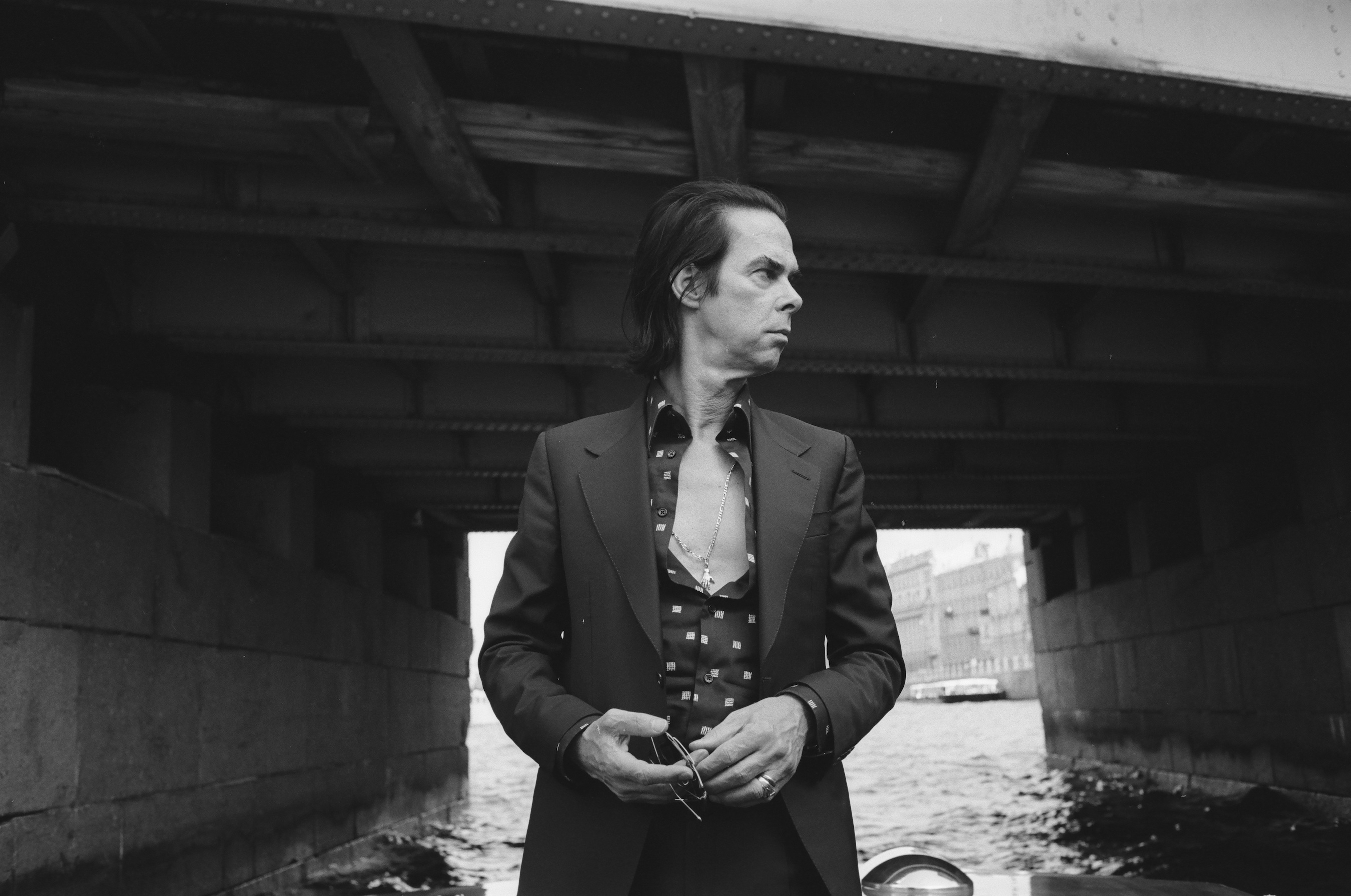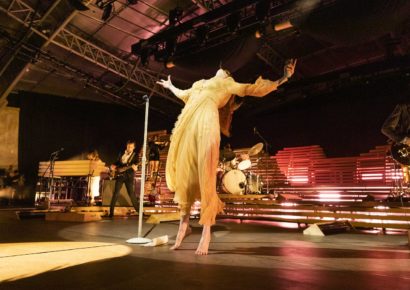The mixture of music and thought-provoking conversation by the Bad Seeds frontman brought audience members closer to one another.
“Are you a famous person?” Nick Cave quizzed the auburn-haired woman in the audience who, like many attendees before her, had raised their hand to ask Cave a question. Tonight was the second of Melbourne’s Conversations with Nick Cave shows. Droves of fans and devotees had arrived to share the next three hours with the visionary artist and, for most in attendance, their idol. The woman giggled bashfully, her breezy laugh floating up into the ceilings of Melbourne Town Hall. “I’m Florence,” the woman replied to resounding applause. Seems even Florence Welch is a Nick Cave fan.
Indeed, tonight was a special affair. There was no room for doubt that during the Q&A-style speaking event there would be a level of intimacy and connectedness between the artist and audience that is near impossible to attain at a typical Nick Cave and the Bad Seeds concert — so much so, that even international touring artists felt compelled to attend. Yet it was clear from the outset that this yearning for connection wasn’t one way; the unfiltered exchange between the audience and artist appeared deeply cathartic for Cave and lent itself to an astonishingly open dialogue that he described as “an experiment in connection,” where no subject was sacred. In fact, he encouraged the audience to be bold in their inquiries, to be confrontational, to be unafraid to ask difficult questions, and to suspend their judgements on other people’s questions and allow people to speak freely.
Cutting a striking figure against the magnificent backdrop of Melbourne Town Hall’s Grand Organ, Cave relayed the sheer terror he’d felt the night prior, having to stand on stage and respond to a string of unmoderated and unscripted questions from audience members. It was in this moment of vulnerability we were able to reflect on the beauty of an event such as this, where every night is vastly dissimilar from the last. No one, Cave included, had any clue what would come next.
What followed was a series of mostly considered and thoughtful questions, which weaved between God and divinity, death and grief, inspirations and artistry, and his reflection on world events. Cave spoke candidly about the anguish he and his wife felt following the death of their son, and their surprise at the enormous volume of grief and suffering people shared with them after the fact. He detailed how, through all their despair, they learnt about people who’d risen out of their own unbelievable traumas. He spoke about his impossibly self-critical view when looking in the mirror and his inability to be inconspicuous when spending time in Melbourne.
Yet it wasn’t all a sombre affair — quite the contrary. While at times the night explored darker shades of the human condition, overall, it was greatly amusing. Laughter was a constant fixture throughout the event, which obliterated any tension that may have existed. We laughed along as Cave regaled us with the ludicrous screenplay he’d written for Gladiator II at Russell Crowe’s request, his experience meeting Bob Dylan at a rainy Glastonbury, and his thoughts on stage musicals. We were intrigued by the vision of Cave getting around Melbourne in a pair of thongs, or spending time in the bush doing “whatever it is you do when you’re in the bush”, or the tale of the first time he met Warren Ellis.
Meanwhile, Cave regularly suspended the conversation to perform songs at his piano, adding moments of remarkable beauty to the event. The room trembled as he performed ‘God is in the House’, while later in the night the audience absorbed every note to ‘The Ship Song’, ‘Love Letter’ and ‘Mermaids’. We were captivated throughout an utterly sublime performance of ‘The Mercy Seat’, while heads rested on shoulders during ‘Into My Arms’.
Yet what was deeply profound tonight was the palpable shift in the room’s energy when those who were seeking answers, rather than simply asking questions, had the mic in hand. When delivering their questions, it was as though they were reaching out to Cave to provide the answers to life’s mysteries that they seemed desperate to receive. And while Cave offered considered responses, he couldn’t have possibly given them the answers they were searching for. After all, contrary to what many in the audience may have believed, Cave is nothing more than a human being who feels the same sense of grief, anxiety and insecurity as we all do. As he closed the show with ‘Skeleton Tree’, we realised that was probably the greatest revelation of the night: that regardless of his prominence in people’s minds and hearts, Cave is simply a man searching for answers to life’s big questions and, in that process, is paving the way for deeper human-to-human connections.







